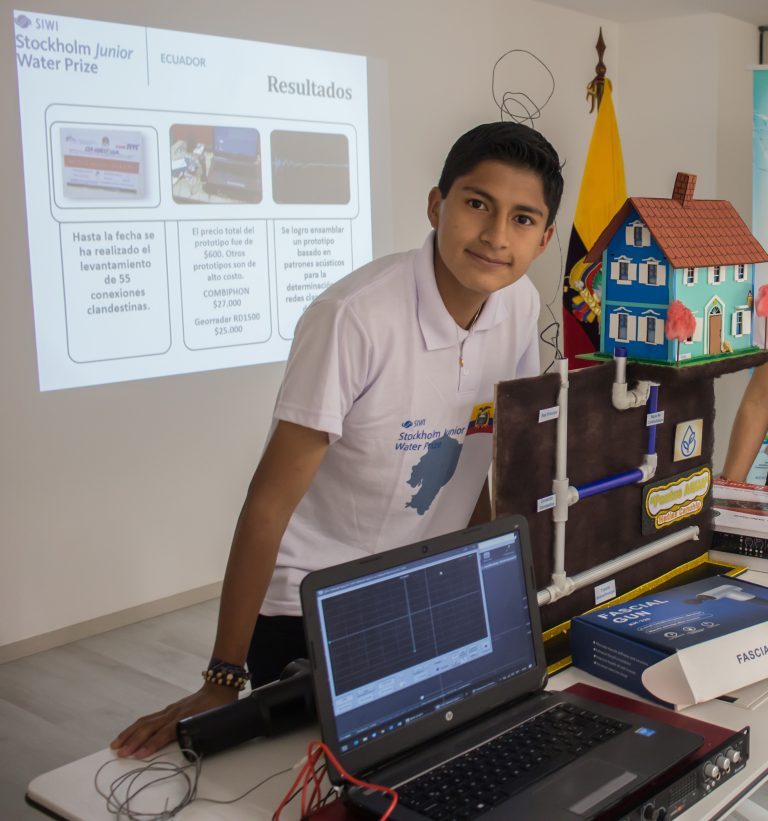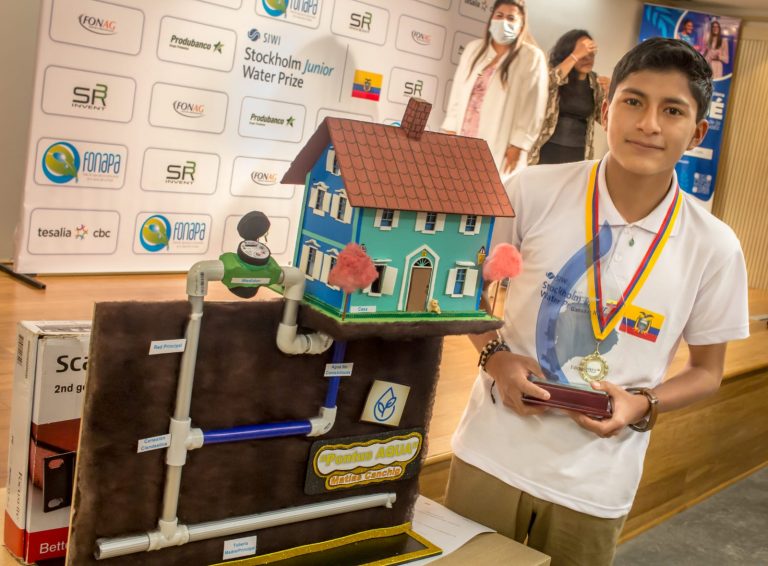heading

My name is Matias Canchig, I come from a small city in the Andean Region of Ecuador called Machachi. I am 15 years old. My main passion is scientific research about water, environment and astronomy. I see myself as “chagra”, an original land boy who protects paramos and loves animals. This year I am the representative of Ecuador at the International Competition in Stockholm.
I am super excited about this opportunity, moreover I am the youngest participant ever to win the national contest in Ecuador. My main hobbies are playing volleyball and soccer, and my favorite player is Leo Messi.
Tell us what the water concern in your country is!Clandestine water connections, being easy to implement, have the potential to become a major problem on a global scale for companies that provide drinking water, that is the case of the water provider of the city where I live.
This is what I think is one of the solutions for a sustainable future:The detection of clandestine connections is a sustainable solution since my prototype is low cost and this gives us time to create other methods. The solution that I created helped to lower the rate of clandestine connections in the canton of Mejia, before we started it the loss of water was 45% now it is 35%.

"Pontus Aqua" Identification of clandestine drinking water connections through acoustic patterns.
The present work deals with the development of a “low cost” prototype for the detection of clandestine drinking water connections, comparable with other products in the market such as a geo-radar already used by the EPPAGE or the pipe locator of the Combiphon brand. The prototype consists of a tapping/vibration generator, an omni-directional microphone, a Scarlett 18i20 interface, free REW software and a spectrogram-sound signal analysis method. All combined allows the detection of irregularities in drinking water connection pipes. In practice, the prototype was able to detect 55 clandestine connections between December 2021 and March 2022 in the city of Machachi and its surroundings. Drinking water is recognized as an essential human right for the full enjoyment of life, so…

